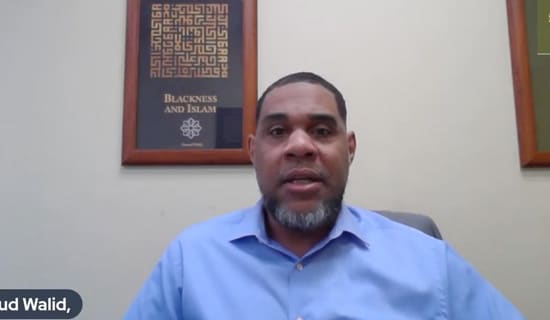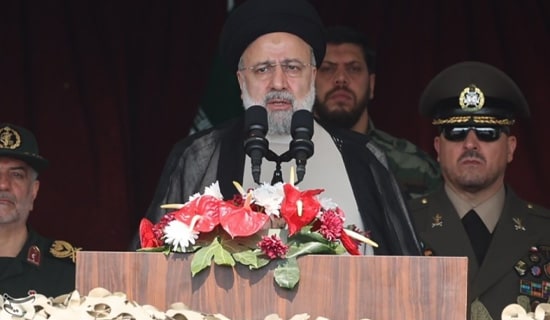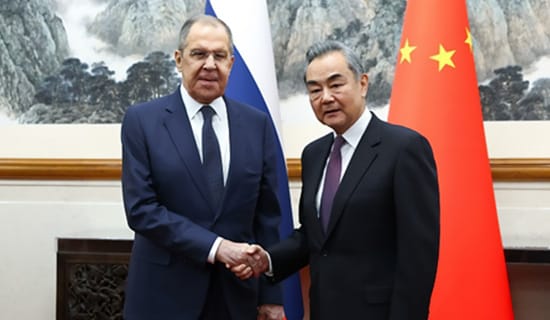Raghida Durgham, Al-Hayat's political analyst and correspondent in New York, criticizes PLO and Arab policy in the UN, following their failure to bring about the establishment of an international observer force in the Palestinian territories. Following are excerpts from the article:[1]
UN not the "Wailing Wall"
"What happened in the Security Council on the issue of an international observer force in the occupied Palestinian territories should serve as a lesson for Arab diplomacy... the time has come to think of a different way of using the UN, whether the Security Council, the General Assembly or the General Secretariat. This means stopping the use of the UN as a sort of 'Wailing Wall...' Likewise it must be understood that the UN has lost much of its status as the shrine of international legitimacy or moral authority..."
Unrealistic Arab Decisions
"Arab leaders must understand that they must cease issuing [international] political communiqu‚s whose sole purpose is to neutralize domestic criticism... Arab Summits have the tendency to adopt evasive positions. ...They unload the burden on Arab ambassadors to the UN and demand that they carry out a policy that is totally detached from the political reality and therefore unfeasible... This is a dangerous method. In the past it was simply meaningless. Today, however, it has become detrimental to the Arab strategic goals and to their integrity... The time has come for the Arab leaders to stop delegating tasks to their ambassadors that are harmful both to the issues themselves and to the UN..."
"Regarding the Palestinian issue, the resolutions of the Cairo Arab Summit and the Qatar Islamic Summit, focused on two unrealistic programs on the international level: a 'protection' force for the Palestinian people and the establishment of an international court for the those 'war criminals' from among the Israeli leaders. So far, no action has been taken concerning an international court. As for the idea of 'protection,' it was later transformed into 'surveillance,' and then to 'observers', and eventually, was gone with the wind..."
"Justifiably or not, the Security Council would under no circumstances allow the prosecution of Israeli leaders as war criminals. The US would not agree to such a thing even if the Likud leader, Ariel Sharon, himself owned up to being a war criminal."
"In addition, a substantial and unprecedented development has occurred in UN-Israeli relations [following the Israeli withdrawal from Lebanon according to Security Council Resolution 425 and the Israeli positions in Camp David], which precludes the possibility of anything that might harm these relations, and certainly precludes the idea of a 'war crimes court.'"
SUPPORT OUR WORK

"Against the backdrop of this qualitative development in UN-Israel relations, Secretary General Kofi Annan makes sure to protect Israel."
Unrealistic Palestinian Approach in the UN
"Despite his role, Annan is a small player compared to the Security Council whose key players, as was proven, are its permanent members... These countries generated fundamental disagreements [among the rest of the Security Council] regarding the Palestinians' strategy and obstinacy in bringing the resolution proposal to a vote, despite its inevitable failure... The result was that seven countries abstained, the US did not have to use its veto, and the support of important countries like Russia, France and England, for the Palestinians diminished..."
"After following several delays in the Security Council voting, each time on a different pretext, Palestinian representative to the UN, Nasser Al-Qidwa, stated that 'This foot-dragging must stop.' The Palestinian leadership 'cannot back down' from this resolution, he said, 'and therefore we have decided to vote so that responsibility will be on the Security Council.' He spoke of 'intimidation' in the UN by American pressures, British 'maneuvers,' French 'withdrawals,' and Russian deception, since 'Russia all too clearly changed its position.'
Criticism of PA Strategy
"A few Arab ambassadors criticized the Palestinian delegation's obstinacy in bringing the proposal to a vote despite its inevitable failure. One of the ambassadors described it as 'political naivete' and 'a big mistake.' He cast the responsibility on Arab leaders and on the Arab bloc in the UN. The leaders, in both the Cairo and Qatar summits, adopted unfeasible resolutions. 'The Arab bloc in the UN should have notified the Arab League that this resolution is not currently feasible, instead of dragging the resolution proposal to the Security Council for it to fail...' According to this Arab ambassador, 'The Arab bloc in the UN should fulfill more than just a technical role. It must think politically, discuss and advise its capitals instead of marching towards a certain failure.'"
"Reliable sources behind the scenes spoke of disagreements and contradictions within the Palestinian leadership. Some Palestinians agreed that the proposal should be put off until after the American-mediated Palestinian-Israeli talks in Washington. Others claimed that the British wickedness went too far, as did Russia with its ill-intentions and France with its imaginary pretexts."
The Resolution Proposal
"The order to bring this proposal to a vote came from the highest Palestinian leadership. Yasser Arafat claimed, in a letter to the UN dated November 29, 2000, that sending an international force was a necessary step and a prerequisite for the resumption of political negotiations. Since the decision to renew the political process was made last week, without this prerequisite being fulfilled, he had to bring the resolution to a vote... and shift the responsibility for its failure to the Security Council..."
"Critics of the Palestinian strategy oppose the use of the UN as a means of temporarily bypassing problems in the bilateral Palestinian-Israeli process. They fear that this may reduce the authority of the UN, as well as the international support [for the Palestinians]."
"But precision is required. The UN must not be used as a means to embarrass this or that country, or as a tool for neutralizing [domestic] criticism. Essentially, there are judicial, political and practical factors that make the Palestinian effort to establish an international force impossible, at least at this stage."
A Pointless Confrontation Between the Palestinians and the Security Council
"As to 'embarrassing' [the permanent members of the Security Council], the Palestinian diplomacy erred when it chose to confront the Security Council and make it 'assume the responsibility.' The Palestinians currently owe a [diplomatic] debt with a high interest rate to the non-aligned countries and to China [who voted in favor of the proposal]. They should not have taken this loan."
[1] Al-Hayat (London-Beirut), December 22, 2000. The editor has added the subheadings.




